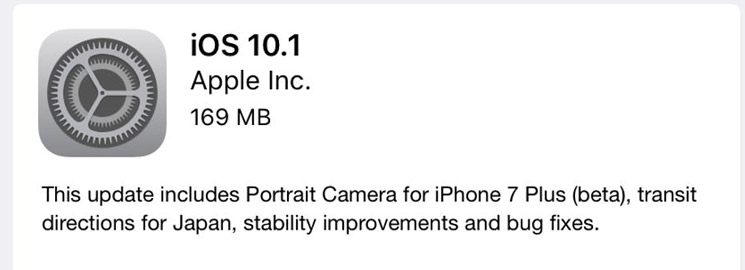If you’re a smartphone user, chances are at some point your phone’s told you there’s a new update available. It’s really easy during a hectic day to disregard that warning and completely forget about it until the message pops up again at the most inopportune time. Many of these incremental updates bring some new flashy features but for many it signals minor fixes to bugs and security issues. Recently Apple urged all of its iPhone and iPad users to update their devices to the latest iOS version in order to fix a nasty security flaw that could allow hackers to take control of their devices. It looks like this recent security flaw makes it possible for an attacker to perform what they call an “arbitrary code execution” on a user’s device after they opened a malicious photo which is in the form of a JPEG file: a common image file format that most people would open if sent to them.
So, what is an arbitrary code execution? An arbitrary code execution means that a hacker would be able to take control of the victim’s device by getting it to run certain commands in the background, or even worse, download your private files from your infected iPhone or iPad. And in this case, hackers may have targeted users with a “maliciously crafted” JPEG file if they haven’t’ installed the latest update of 10.1. Again, according to Apple’s description of the flaw, it would allow an attacker to take control of an iPhone or iPad after the user simply viewed a corrupted photo file.
To download the lasts update for iOS, which is version 10.1 and fix the flaw, unlock your device and tap on “Settings,” then “General.” Next, tap on “Software Update” and the iOS 10.1 update should automatically appear. Then tap “Download and Install.” Apple usually recommends that you backup your device before installing new software to ensure you don’t lose any data. If you have photos or data that you don’t want to risk losing, you should back up your phone to iCloud or plug it into a computer with iTunes before installing the update. iOS 10.1 includes several other security fixes, as well as some new features for iPhone 7 users. With that in mind, there are now complaints from some users on the Apple community forums that when updating to iOS 10.1, the update is deleting users’ Apple Health data. This includes users activity, sleep and nutrition records that seem lost and reboots or even factory resets do not bring it back. At this stage it is unclear whether Apple will be able to restore the data with a fix (probably iOS 10.1.1) or if it is gone for good, but even some iOS health app makers are warning their users of this problem. This development is also bad news for the Apple Watch given the integration with Health is one of its biggest features.
I would still recommend updating if you have a device capable of running iOS 10. Dated devices will run slower but most people probably recognize that if they have an older device with iOS 8 or 9 but having a more secure mobile device is more important than speed at this point in time. If you use the Apple Health app with other third party apps and hardware you might want to make sure you have a backup either on your computer or in iCloud first before you perform the update on the off-chance it affects your Health data. In the meantime I suspect users should brace themselves for iOS 10.1.1 update sooner rather than later.


Leave a Reply